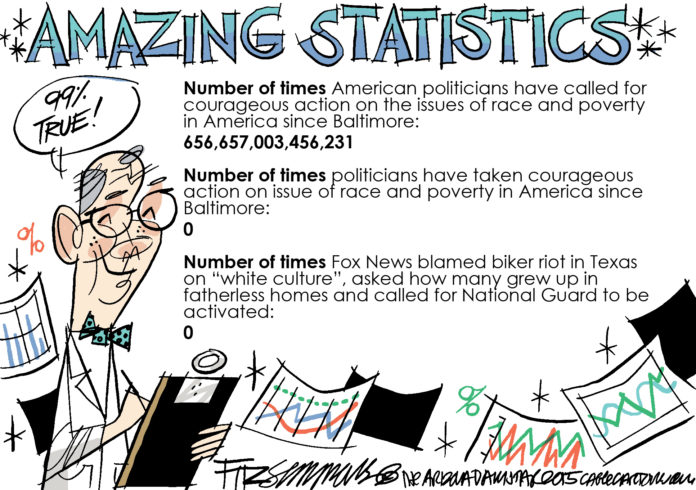BY CHRISTIAAN MITCHELL
With almost comic predictability, recent proposals to increase the minimum wage have trigged conservative doomsayers to conjure a parade of horribles that will descend and destroy the economy once and for all.
As is typical of this kind of ideology-driven politics, the fact that the Statue of Liberty didn’t crumble into the sea the last 22 times we raised it makes little difference to these doomsayers. Because, you see, there is a specter haunting any effort to regulate the economy: the law of unintended consequences.
For the uninitiated, the law of unintended consequences is the principle that we live in a complex world and fiddling with this or that always produces at least some consequences we neither foresee nor desire.
In its most common political use, it’s a libertarian article of faith that conservatives trot out any time some new regulation or tax is proposed. But, its frequent invocation as a [anti-]policy bludgeon can cause us to miss the important fact that the status quo also has unintended consequences.
The unintended consequences of the status quo were on full display recently in Baltimore. The unrest there was an unintended consequence of a legal and social system that disproportionately impacts black [and Latino and Native American] lives.
Regardless of whether you think the [largely unreported] days of nonviolent protesting or the [heavily reported] few hours of rioting in Baltimore were justified, they are both easily foreseeable, if unintended, consequences of the racist status quo.
What’s more, we also have to see that our legal system is only one facet of a much larger, and equally racist status quo that concentrates poverty and its attendant social ills in “minority” communities.
Many would question whether it’s fair to call these consequences unintended given our overtly racist history. But granting the system its good intentions, we have to at least ask why it’s so hard for so many of us to see these as unintended consequences of our policy choices [or lack thereof]?
In most cases, it’s simply that we are more comfortable with the devil we know. Our current social ills are familiar, even normalized, and the thought of changing and creating new evils we have yet to become numb to can be more than a little discomfiting. After all, experimenting with social policy is a tricky and uncertain business, rife with the possibility of unintended outcomes.
However, an unwillingness to change brings with it the absolute certainty that the unintended consequences of the status quo will persist. Persistent consequences can only remain “unintended” for so long. And the integrity of our democracy depends on us asking whether we should be more comfortable with the devil we know when it’s a devil only other people have to deal with.
A nebulous fear of the possibility of untoward outcomes should always be weighed next to the certainty that our current, untenable and unsustainable status quo will persist unless we do something to fix it.
– Christiaan Mitchell is a Bartlesville, OK lawyer who holds master’s degrees in philosophy and education.








